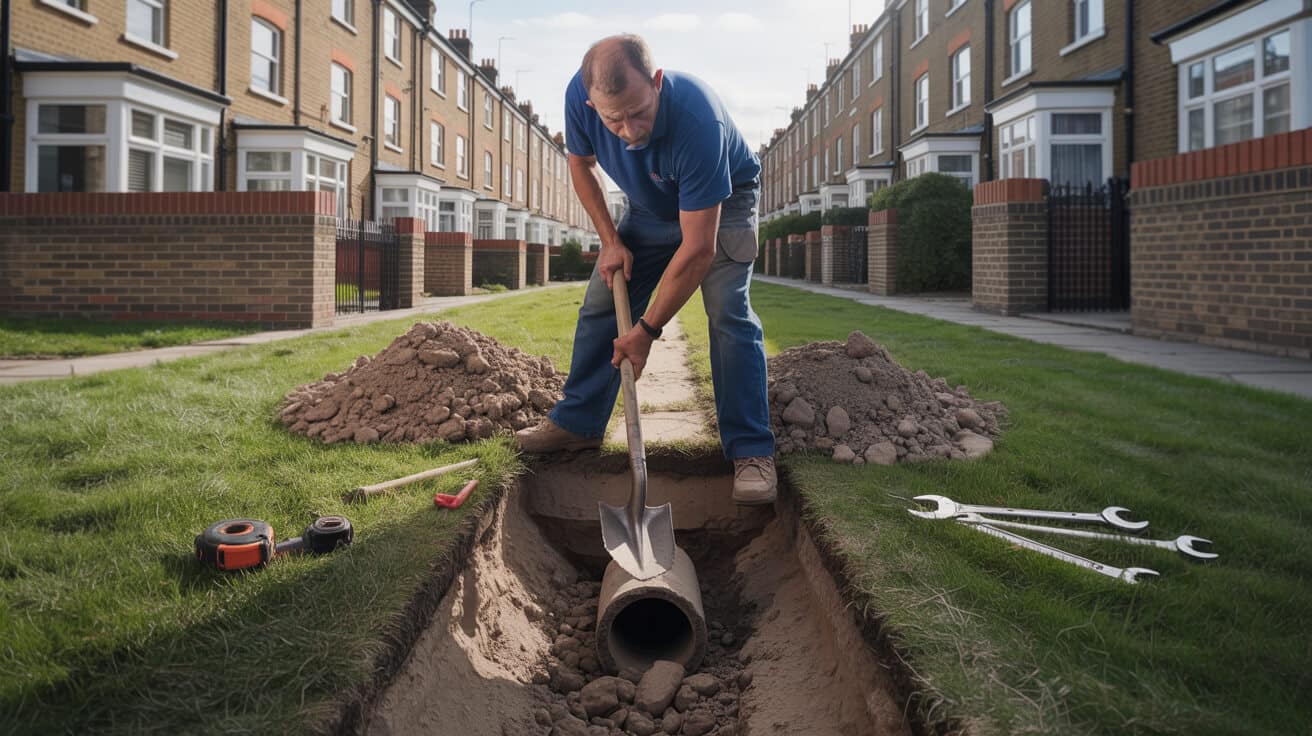 How to Prolong The Life of Your Boiler
How to Prolong The Life of Your Boiler

Why Is Your Boiler’s Lifespan Shorter Than It Should Be—and What Actually Stops the Failure Cycle?
Across the UK, boilers are failing earlier—not because of wild winters or bad luck, but because daily routines quietly work against them. Most property owners and landlords treat a boiler as “background kit”—it heats until it doesn’t, then suddenly the repair bills, insurance blindsides, and compliance headaches all arrive at once.
Most property disasters don’t erupt—they creep up because you ignored the quiet warnings.
If you’re a homeowner, landlord, or managing agent, neglecting your boiler isn’t just a nuisance; it’s a risk to your property’s value, to compliant letting, and to your bottom line. An unserviced boiler means:
- Claim denials: —Insurance providers now routinely ask for up-to-date, engineer-stamped service logs before payout; any gap or DIY repair leaves you exposed.
- Warranty voids: —Boiler manufacturers see missed services as grounds to bin your cover.
- Efficiency losses that compound: —Internal corrosion, veins of black sludge, dropping pressure and unchecked leaks start slow, but pile up in both gas usage and surprise call-outs.
Homeowners often slip into “ignore it till it clatters” thinking. Landlords and commercial managers might think “I did last year’s CP12, it’s fine”—blind to what’s building up unseen. The truth? Treating your boiler as an asset, not a background noise, separates those who rack up big call-out spends from those whose portfolios run steady.
The real game-changer is threefold: professional annual servicing, a habit of weekly walkarounds, and keeping tight, photo-rich documentation. Each amplifies the others—and together, they stretch lifespan, drive down bills, and keep every compliance audit stress-free.
Does Annual Boiler Servicing (and Proper Proof) Really Save You Money and Headaches?
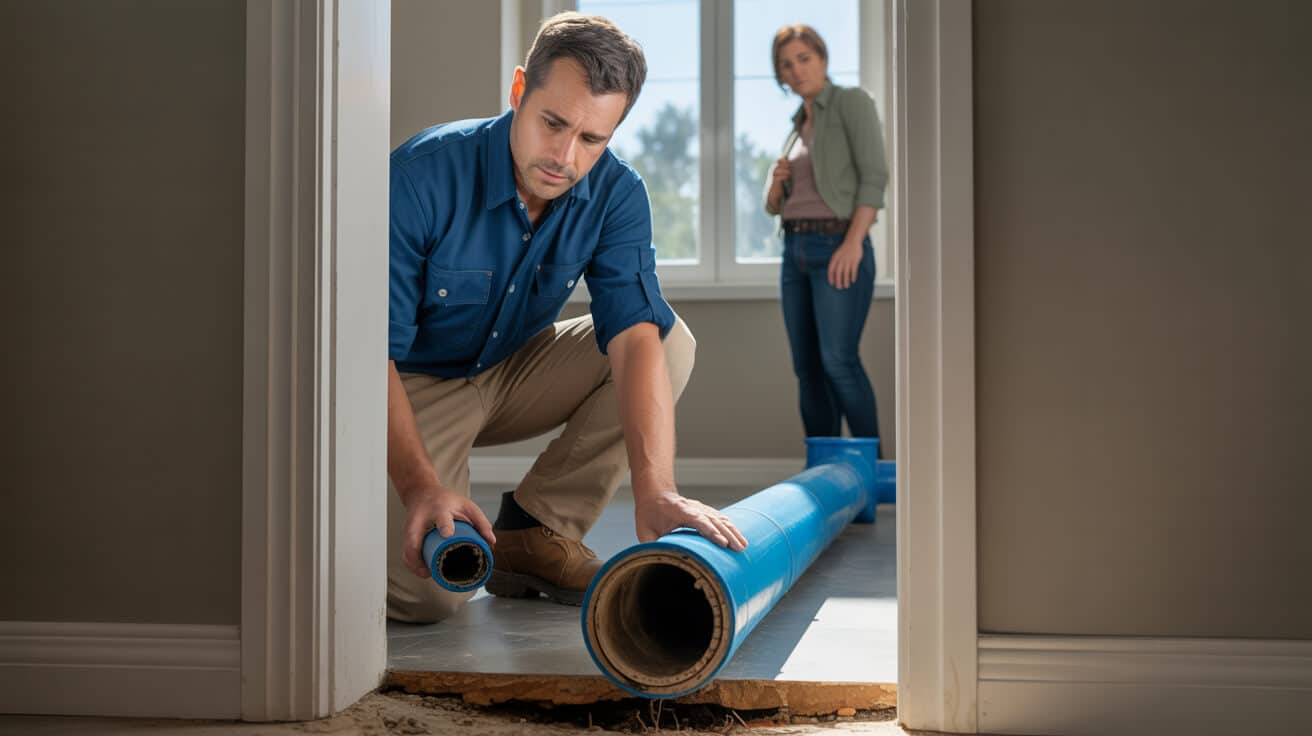
It’s not just regulatory box-ticking—for most UK households and rental properties, annual boiler service is the single easiest way to avoid costly breakdowns and insurance stand-offs. Gas Safety Regs and G3 rules make it mandatory for landlords, and Energy Saving Trust data shows it pays off for everyone: more than half of insurance payout refusals are due to missing or incomplete service documentation (energysavingtrust.org.uk).
Here’s what a real protection strategy looks like:
- Always bring in a qualified, Gas Safe, OFTEC, or G3 engineer—no exceptions, no “mate’s rates”.
- Log everything with time-stamped entries—digital or paper is fine, as long as it’s stored and findable. Keep every certificate and replacement part invoice.
- Photo documentation: a shot of the boiler serial, pressure gauge, replaced part, or even the cleanout is simple, quick, and now required by many insurers and all reputable landlords.
Insurance doesn’t pay for what you thought you did—only for what you can prove, photo by photo.
Letting and managing agents with dozens of properties rely on these logs to cut disputes and avoid audit panic. Homeowners benefit, too: holding a digital “protection file” means one major failure doesn’t become an insurance exception, a warranty wrangle, or even a grant-loss when you polish up for EPC improvements.
And the detail others miss? Treating every engineer visit as an *asset-protection opportunity” unlocks value: better comfort, fewer interruptions, and real leverage when it’s time for claims or compliance. In short, make service and proof your default, not your afterthought.
Can a Simple Weekly Check Really Catch Boiler Problems Before They Cost You?
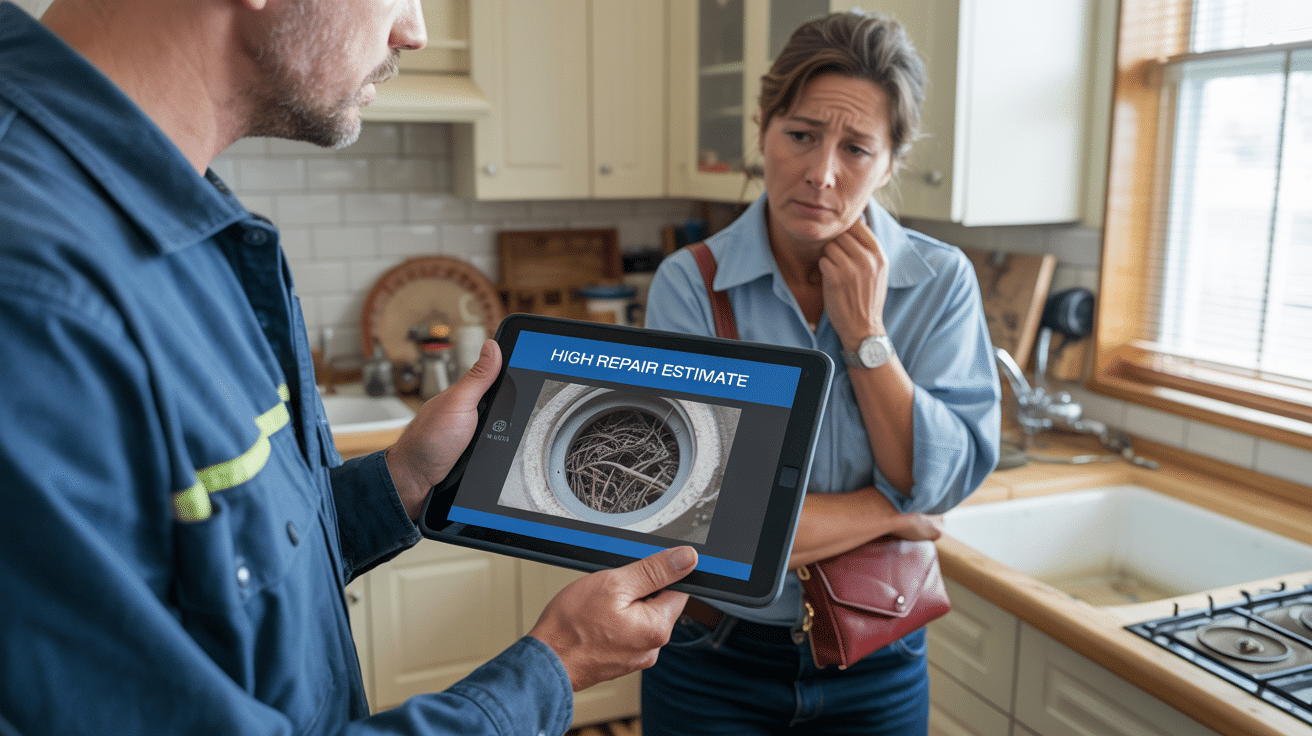
You don’t need a toolkit—or hours on YouTube—to prevent the costliest boiler problems. A one-minute check, every week, helps avoid about four out of five emergencies (source: Action Plumbing & Heating, actionplumbingandheating.co.uk). Here’s what seasoned property pros do:
What to Check—Weekly in Every Property
- Pipework and Valves: Inspect visible pipes for new drips, green or white stains, or any sign of corrosion. Most leaks start as a faint patch nobody notices.
- Pressure Gauge: For sealed systems, pressure should stay steady (1.0–1.5 bar is the sweet spot). If it creeps down, or you keep topping up, a leak or vessel fault could be brewing.
- Damp & Smell: Anything musty or damp near the boiler or airing cupboard? Even minuscule puddles or greenish pipes usually mean “escalate now”.
Most repair photos we review started as just a mark spotted by someone paying attention.
If you see any of these:
- Pressure still drops after topping up: —get a pro. There’s likely an internal fault, not just an innocent air bubble.
- Damp patch under the boiler: —that’s not a cleaning issue, but corrosion on the move and, left alone, a future insurance problem.
Don’t “wait and see”—send a photo to your engineer (or Plumbers 4U) for a remote triage, and nearly always, the problem either gets solved early or you earn a service visit that starts small, not catastrophic.
Professionals make proof a routine. Action trumps luck every single time.
Are Banging, Gurgling or Cold Radiators Warnings You Need to Act On?
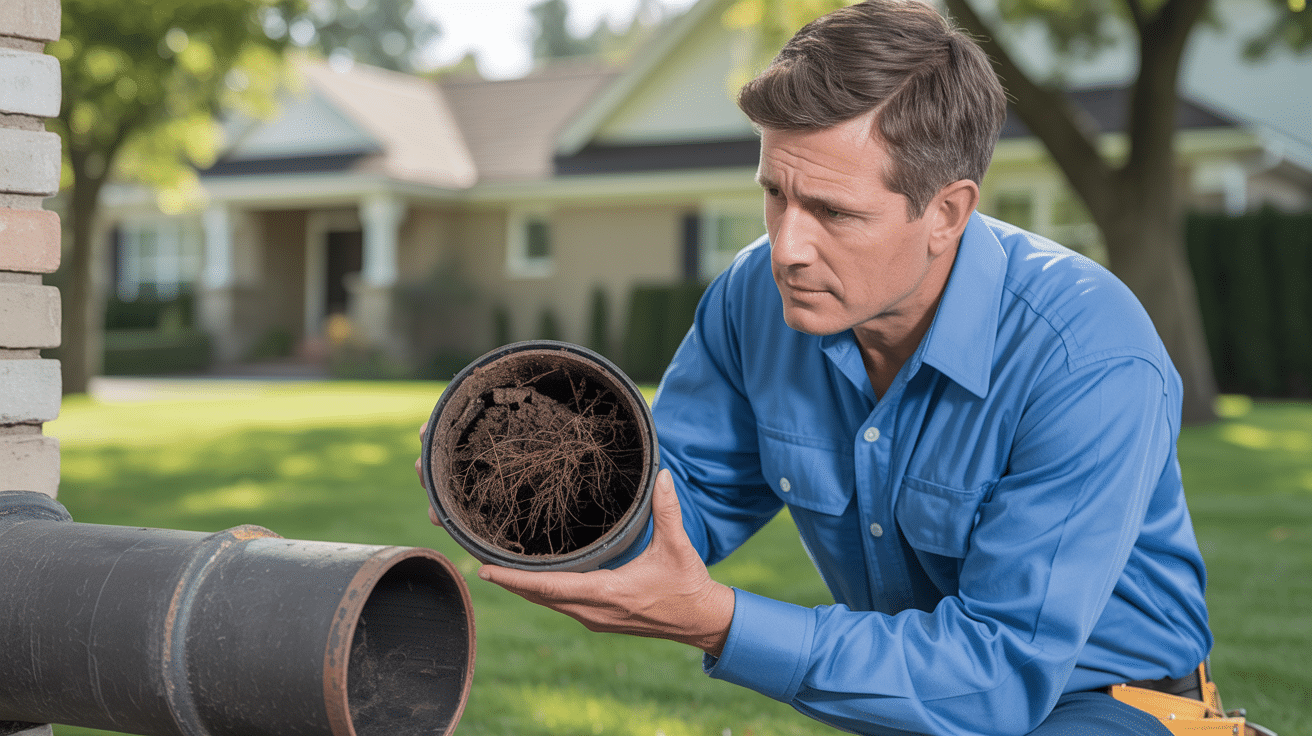
A healthy boiler system is almost silent. Banging, tapping, or gurgling radiators are always a warning—ignore them, and the outcome is both higher bills and looming boiler failure. Performance shifts such as cold tops to radiators, sludge on bleeding, or system slowdowns aren’t “signs of age,” but symptoms of underlying issues: airlocks, sludge, worn components, or even pump stress.
Noises to Watch For—and What They Mean
- Cold Radiators (Top or Bottom): Top-cold? Bleed first (always start at highest point); stay cold or slow heat-up after bleeding? That’s likely sludge, trapped air, or pump issues.
- System Noise: Any clanking, groaning, or water-hammer means stress within the circulatory system—pumps, valves, or scaling parts are being pushed towards failure ([painemanwaring.com](https://www.painemanwaring.com/comprehensive-boiler-maintenance-checklist-paine-manwaring/?utm_source=openai)).
- Brown or Rusty Water: That’s internal corrosion eating the system; it requires professional flushing and inhibitor, or you start counting days to a major component swap.
If you act at the first odd noise, you save money. Wait, and you buy both parts and inconvenience.
It bears repeating: cranking up the thermostat, or kicking the boiler into overdrive, doesn’t “force-out” a problem; it just heats the next bill and shortens the lifespan further.
Record what you hear, snap a video if you can, and share it with your trusted service partner. Most fixes are swift if caught at this stage. The longer you leave it, the more the “cheap” repairs disappear.
Are Outdated Thermostats and “Short Cycling” Quietly Killing Your Boiler’s Lifespan?

If your control-board is older than your phone, your boiler is probably working harder than ever. Outdated mechanical thermostats, clock dials, or “set-and-forget” timers force your system to run at high for longer than needed. This leads to “short cycling”—the boiler fires on and off repeatedly, its component parts overheating and cooling dozens of times a day.
Why This Wrecks Boilers Quickly
- Component Wear-Out: Pumps, zone valves and circuit boards aren’t designed for this rapid cycling; each “false start” eats into their life.
- Scale Buildup: The more you use “max” settings above 22°C, or repeatedly hit the “boost,” the more limescale and sludge build internally.
- Overshoot Wastes Money: Heating overshoots increase bills and stress out seals, joints, and sensors—leading to leaks and false lockouts.
smart thermostats, like Hive or Nest, learn your home’s rhythm—less cycling, less stress, less downtime.
Switching to even a basic programmable thermostat prevents much of this—while app-driven models can cut replacements by years and save hundreds on gas, just from more accurate cycle timing (worcester-bosch.co.uk).
Landlords: walking tenants through proper “boost” and eco settings is a direct investment in the lifespan of both your system and your letting peace of mind.
A cheap controller is a hidden cost; upgrade and watch call-outs (and headaches) disappear.
Can Smart Controls and Weather Compensation Really Make Your Boiler Last Longer?

Smart tech isn’t a luxury anymore—it’s a proven tool for making any boiler safer, more resilient, and cheaper to run. Clean instals of Hive, Tado, Nest, or their competitors enable room-by-room scheduling, remote boosts, and a live read on energy use. At Plumbers 4U, we see these controls cut breakdowns, lengthen lifespan, and drive EPC boosts—now demanded by both buyers and regulators.
Weather Compensation: Why It Matters
- Thermal Stability: Weather comp modules connect the system to an external sensor, shifting flow temperature up or down to match conditions—less thermal shock, longer life.
- Grant-Friendly Compliance: EPC and MEES standards tick “energy improvement” just for adding smart controls.
- Fewer Power Surges: With steady boiler profiles, pumps, valves, and seals work in smooth arcs instead of all-or-nothing shocks. This trickles down to real-world savings and proven reliability ([yourboilerexperts.com](https://yourboilerexperts.com/news/smart-modulating-termostats/?utm_source=openai)).
A good system upgrade isn’t always a pipe—it’s an intelligent thermostat, fitted by someone who can explain it in plain English.
If you want the comfort, the proof for grants and audits, and fewer winter emergencies, smart control is the practical next step for every rental, home, or managed property.
One setup, installed right, lasts years and pays out every winter in both bills and in property value.
Are You Overlooking the Impact of System Philtres, Chemical Inhibitors and Professional Flushing?

Even the best-serviced boilers will fail early if their pipes, pumps and rads fill with sludge. Modern philtres, annual chemical top-ups and, where needed, a strategic power flush are the unsung heroes of boiler longevity.
Small Steps, Big Rewards
- Magnetic philtres: —Trap iron oxide from radiators and old steel pipes, must be cleaned at every service and logged with a photo to keep grant/insurance options open.
- Chemical inhibitor: —This fluid stops scale and corrosion dead in its tracks. A single litre, dosed annually, can mean aches of savings over time.
- Powerflushes done right: —Professionals test before and after using thermal imaging/pH checks. Over-flushing can hurt, so insist on diagnostics plus photos, not just a “quote and go” job ([pat.org.uk](https://www.pat.org.uk/appliances/09/2023/maintenance-tips-for-extending-your-boilers-lifespan/12051/?utm_source=openai); [vaillant.co.uk](https://www.vaillant.co.uk/homeowners/advice/boiler-servicing-and-maintenance/boiler-maintenance-tips/?utm_source=openai)).
If you can’t prove philtre cleaning or fresh inhibitor in the log, your risk is climbing, even if the rads seem hot.
Most failures attributed to “tired old boilers” are simply the result of neglected philtres, stick mechanicals, or zero trace of inhibitor. Make physical and digital proof a habit, and raise your system from “just working” into “future safe” territory.
Invite your next engineer to document every stage, explain what’s been done, and flag what’s coming due. That’s the first sign they’re working for your asset, not just chasing their next call-out.
Why Does DIY or Poor Compliance Jeopardise Insurance, Grants, and Your Peace of Mind?
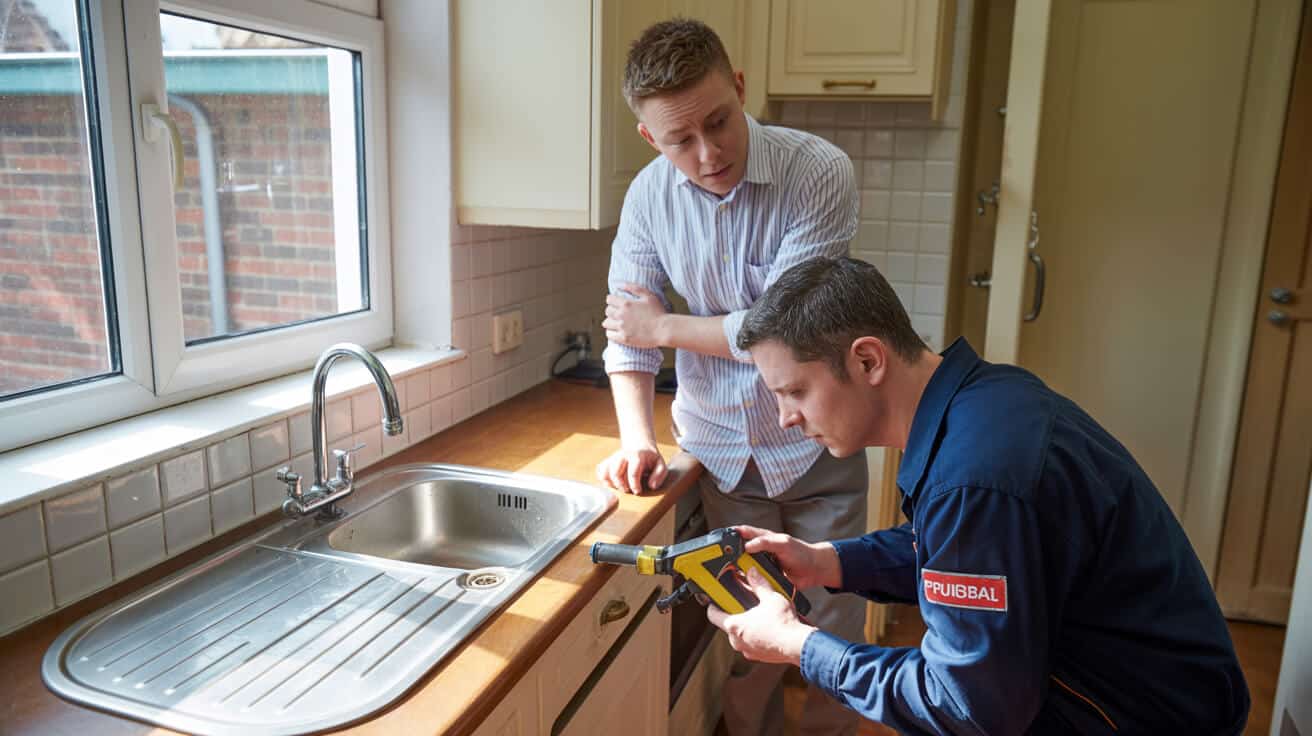
This, honestly, is the deal-breaker. You can do everything else right, but a single skipped service or a well-meaning handyman invalidates thousands in insurance, grants, and warranty. In the UK, repairs by unregistered hands put you on the wrong side of Part G, Gas Safe, G3, and a long list of rules that every insurer and letting agent knows by heart.
Protect your investment: proof beats promises every time—especially with insurers and auditors.
Industry surveys indicate about a quarter of property owners try a DIY patch or skip certified checks, only to pay out of pocket after a “rare” failure (which.co.uk).
Don’t Let This Be You:
- Never silence errors, repressurise, or replace safety-critical parts without a Gas Safe, OFTEC, or G3-registered pro—“mate does it cheaper” always means costlier failures down the line.
- Keep every document—CP12, G3, photos, part logs—digital and shareable for tenant, agent, or claim.
- Landlords: missing even one annual check blocks you from letting, can void insurance, and bars grant claims unless you put it right (and can *prove* it).
With Plumbers 4U, compliance is embedded: every service, test, or swap is instantly added to your digital file. No missed reminders, no lost cover, no ambiguity with auditors.
DIY is a gamble you always lose—get the compliance and the proof, and you keep your asset (and wallet) safe.
Book Plumbers 4U Today for Boiler Life, Insurance Certainty, and Worry-Free Compliance
Stretching your boiler’s life—and your property’s value—is about more than parts and pipe. It’s about bullet-proof documentation, compliant servicing, and knowing every technician who touches your system is both certified and transparent.
With Plumbers 4U, you get:
- Gas Safe, G3, and OFTEC registered engineers: —ID shown, work documented step by step, and every action explained before a penny changes hands.
- Photo and logbook evidence: —Your digital “asset file” is built with every visit: new philtre cleaned? Inhibitor dosed? Lockshield swapped? All logged and photographed.
- On-demand triage: —Snap a photo of the gauge, a new mark on the pipes, or an odd sound; get instant, jargon-free advice—even before a visit.
- Certificate and grant reminders: —Landlords and agents get zero-obligation prompts about CP12s, G3s, and grant deadlines. All proofs always accessible, no hidden small print.
- Every repair and replacement, documented: —Ready to show insurers, auditors, or buyers at a moment’s notice.
Emergency bills are what you pay when proof, servicing, or early intervention gets skipped. Most disasters are stopped with a single timely check.
Choose engineers who act like your asset’s future is worth something. Book Plumbers 4U—where certified expertise, proof, and peace of mind meet. Your next service isn’t just a job—it’s a shield for your home, tenants, business, or portfolio… for years ahead.
Frequently Asked Questions
What often-overlooked factors cause modern boilers to fail sooner—and how do you catch them before the expense multiplies?
Small, invisible problems are usually behind major boiler breakdowns and rising energy bills. Most people never notice the start of internal corrosion, micro-leaks behind boxed-in pipes, or a slow tick down in system pressure until the boiler goes cold or starts burning far more gas than normal. Water quality issues, missed inhibitor doses, or even something as trivial as ignoring mild hissing can strip years off a boiler’s life. According to the Worcester Bosch 2024 Reliability Study, over 60% of “early-age” boiler failures in UK homes are traced to ignored pressure drops, sludge, or untreated limescale—not component faults (Bosch 2024).
The boiler you can’t hear or see working is still changing every day. Subtle clues become costly if you don’t check.
Why do these issues fly under the radar?
- Pressure gauges tend to drop without much warning—by the time you see a flashing fault, a leak or sludge may have been active for weeks.
- Internal scaling forms inside heat exchangers, slowing hot water and raising your bills, yet gives away nothing except slower heat-up or patches of mild noise.
- Muffled “kettling” or slight mechanical ticks are usually dismissed as pipe expansion, not as early warning of major blockages.
How should you monitor the signs before they’re a problem?
- Photograph your pressure gauge fortnightly and save it—a visible dip is your first red flag.
- Gently touch exposed copper pipes after heating runs; a cold, damp, or unusually warm pipe indicates a flow, leak, or airlock issue developing.
- Listen after shutdown for new hissing, metallic ticking, or repeating pump sounds. These are often the earliest tip-off of air, sludge, or limescale.
- At annual service, request a sample from your magnetic philtre (if fitted)—any sign of black, oily residue or visible grit means your system is overdue for intervention.
Plumbers 4U provides remote triage: send over a gauge photo, a recording of suspicious noises, or even a quick video of damp or new stains. Quick advice now is worth a year of peace—and a record for insurer or landlord queries should anything escalate.
What’s the long-term cost of missing those subtle signals?
modern boilers can run for months while accumulating faults, but the first real symptom often strikes at the worst moment: winter, a tenancy change, or during a property sale. Ignoring those little warning signs leads to higher fuel bills, risk of losing insurance or service warranty, and can turn into full breakdown or replacement costs. For landlords and letting agents, missing preventative checks usually means tenant complaints, loss of cover, and a scramble for last-minute fixes no one wants.
Plumbers 4U’s system audit and early-issue monitoring help you lock in reliable heating, preserve insurance eligibility, and avoid surprise costs that snowball fast.
Why does regular certified servicing matter more now for your insurance, compliance, and property value?
A professionally serviced boiler is far more than a “tick box”: it’s your documented defence against insurance denials, warranty disputes, and market-value disputes at resale. Lenders, insurance, and letting agents have become aggressive about paperwork and digital proof; missing service logs, digital photos, or the wrong stamp on a certificate are now the main triggers for withheld payouts—whether or not your original fault had anything to do with the boiler itself (ABI Claims Report 2023).
You can fix a heating fault, but you can’t repair missing records when an insurer asks for proof at audit.
What documentation defends you against insurance refusals?
- Ensure a Gas Safe, G3, or OFTEC certified engineer does the visit—ID must be checked every time.
- Have them stamp a physical benchmark book or submit a digital report with every service.
- Make sure photos are taken for any cleaned philtres, pressure vessels, or replaced parts.
- Store digital or paper records for every annual service, breakdown, and major upgrade—these need to be shown at sale, audit, or claim.
Why is this especially urgent for landlords and managers?
Legislation now mandates landlords keep up-to-date CP12 gas safety, hot water (G3), and service logs—or face fines over £6,000, and be barred from new tenancies. Many letting agents won’t approve rentals or handle deposits without photo and logbook proof that all recent services and upgrades were carried out by certified pros.
With Plumbers 4U, every service, repair, and report is logged and available in digital format—secure, accessible, and ready for instant insurer or agent queries. This means less hassle, faster claims, and better asset protection for property professionals.
Which short and long-term checks genuinely keep boilers running smoothly and prevent breakdown costs?
A handful of simple routines will add years to boiler life and clip hundreds from energy and repair bills. Most calls for help happen after months of small missed clues—like dusting off a “noisy” heating system once winter hits, or ignoring falling pressure for just a bit too long. Research from the 2024 Energy Trust shows homes that stick to weekly visual checks and seasonal test-fire routines see breakdowns drop by 65%, often with only a few minutes’ attention each week (Energy Trust 2024).
Systems that get a minute of attention each week outlast every one that’s left to luck.
What’s truly worth doing, every week and month?
- Look for new marks, drips, or cracks below the boiler after each use—damp, stains, or unexplained build-up mean a leak or weep has probably started.
- Check the system pressure after every cold snap or big family event (extra demand is a hidden trigger for issues).
- Run your heating for at least five minutes every three weeks—even in summer. This keeps pumps, valves, and expansion vessels in motion.
- Give the boiler a “smell test” every season. Burnt, musty, or metallic odours are warning signals worthy of a quick engineer look.
How do these habits lead to tangible, measurable savings?
- Documented regular checks can reduce “emergency” call-outs by more than half and help win coverage for accidental damage in some insurance plans.
- Digital photos and simple logs build up a track record of “duty of care” for tenants and property value—especially for agencies handling multiple premises.
- Data suggests owners who check weekly and have digital reminders spend, on average, £200 less a year on urgent fixes.
- Property managers keeping these checklists face fewer complaints, less legal risk, and better tenant reviews.
Plumbers 4U offers custom checklists and digital monitoring tailored to each property—you get step-by-step reminders and a direct line to triage if something’s off. Staying proactive turns boiler care from a headache into a reliable asset and helps keep every stakeholder confident that “you’ve got it covered.”
When do boiler noises, pressure drops, and odd heating behaviours demand urgent expert action?
Not every hiss or pop is the start of a disaster—but when does a new sound, sloshing radiator, or sudden loss of pressure mean “drop what you’re doing” and call a pro? Over 70% of critical faults start as a soft warning—metallic knocking, recurrent hissing, or radiators that heat unevenly account for most big winter boiler emergencies in recent studies (Heating Technical Board, 2023). These cues, if fast-tracked to the right expert, can save thousands and days of household disruption.
Boiler noises signal risk; most ignore them, but the bills always catch up.
What must you act on straight away?
- Consistent metallic banging, whistling, or clanking—not just during startup but whenever the system’s running—usually point to internal scaling or pump issues.
- A “hissing” radiator or pressure reading that drops below recommended limits (1.0–1.5 bar) is a classic indicator of an active leak or faulty filling loop.
- Gurgling, trickling, or sloshing—especially when one or two radiators remain cold—means internal airlocks, system sludge, or progressive rust.
Photograph pressure readings and record any unusual boiler or radiator sounds with your phone. Plumbers 4U will review these on the spot, advise on urgency, and even schedule “same-day” callouts when a problem can’t wait.
Why respond quickly?
Fully developed boiler damage costs at least four times as much as an early fix. For portfolio managers or landlords, showing you escalated an issue at the first sign of trouble often decides if insurance, tenant claims, or value preservation hold up under scrutiny.
Plumbers 4U’s rapid-response assessment gets an engineer on-site or delivers a fix plan before risk, cost, or stress escalate out of control.
Which system upgrades provide the best return on longevity, grants, and energy savings for your property?
The new wave of boiler tech isn’t just about automation—it’s about proven return: lower running costs, fewer faults, and easier compliance. Installing a smart thermostat with outdoor weather sensors, fitting magnetic philtres, or dosing chemical inhibitors adds operational years and can unlock eligibility for grant support under new UK energy rules. As confirmed by Which? (2023), smart controls cut annual gas consumption by up to 22% and philtres reduce major callouts by nearly two-thirds.
| System Upgrade | Projected Savings | Increase in System Life |
|---|---|---|
| Smart controls w/ sensors | **Up to 22%/yr** | Reduces cycling, part fatigue |
| Magnetic philtres | **-63% breakdowns** | Stops sludge, blockages |
| Chemical inhibitors | £200–£600/5 years | Up to +4 years |
A small improvement today is worth more than a total replacement tomorrow.
Why should managers and compliance-driven owners prioritise upgrades now?
- All new grant programmes and government incentives (like BUS, ECO4) demand evidence of active smart controls or magnetic filtration to qualify.
- Many insurers give “care discounts” to properties with digital controls, recorded upgrades, and zero missed services.
- System upgrades often increase the valuation of managed and rental stock, reducing void periods and boosting long-term yields.
Speak with Plumbers 4U for a scan-and-plan service; they’ll map out cost-saving and life-extension upgrades aligned to your current assets and compliance targets—ideal for homeowners, landlords, and multi-property managers looking to future-proof investments.
What risks come from non-certified repairs or missing records—even if heating ‘works’ for now?
Many property owners are tempted to get “quick” fixes off the book or ignore the last paperwork batch, especially if everything seems to function. But today’s insurance, lender, or rental compliance checks work by digital cross-link—any gap is a major red flag. Insurers, letting agents, and grant providers are now declining claims or even barring lets where paperwork is incomplete, repairs not certified, or logbooks missing service stamps (Which? 2023 Policy Audit).
Paperwork wins claims. If it’s not digital, clear, and up-to-date, no company pays out—even for honest faults.
What documentation matters to avoid refusals and fines?
- For landlords: Regular CP12 gas safety, benchmark stamps, and G3 unvented records secure rental eligibility and avoid large fines.
- For homeowners: Proof of certified engineer attendance and time-stamped upgrade/repair photos are now required by leading insurers.
- For managers: Building a secure digital logbook (photos, invoices, certificates) is indispensable; audits, court cases, and major sales all rely on it.
What steps protect your property and asset value?
- Don’t allow DIY or non-certified engineers to make any change to your heating or hot water systems.
- Keep all paperwork—scanned and clearly labelled—for every job, upgrade, or repair (Plumbers 4U provides accessible digital storage).
- Book compliance checks before refinancing, letting, or submitting for grants/sales; get flagged issues fixed before they block critical outcomes.
Rely on Plumbers 4U for “claims-safe” upgrades and airtight documentation—maximum market value, minimum risk, and stress-free compliance for every asset and audit.

